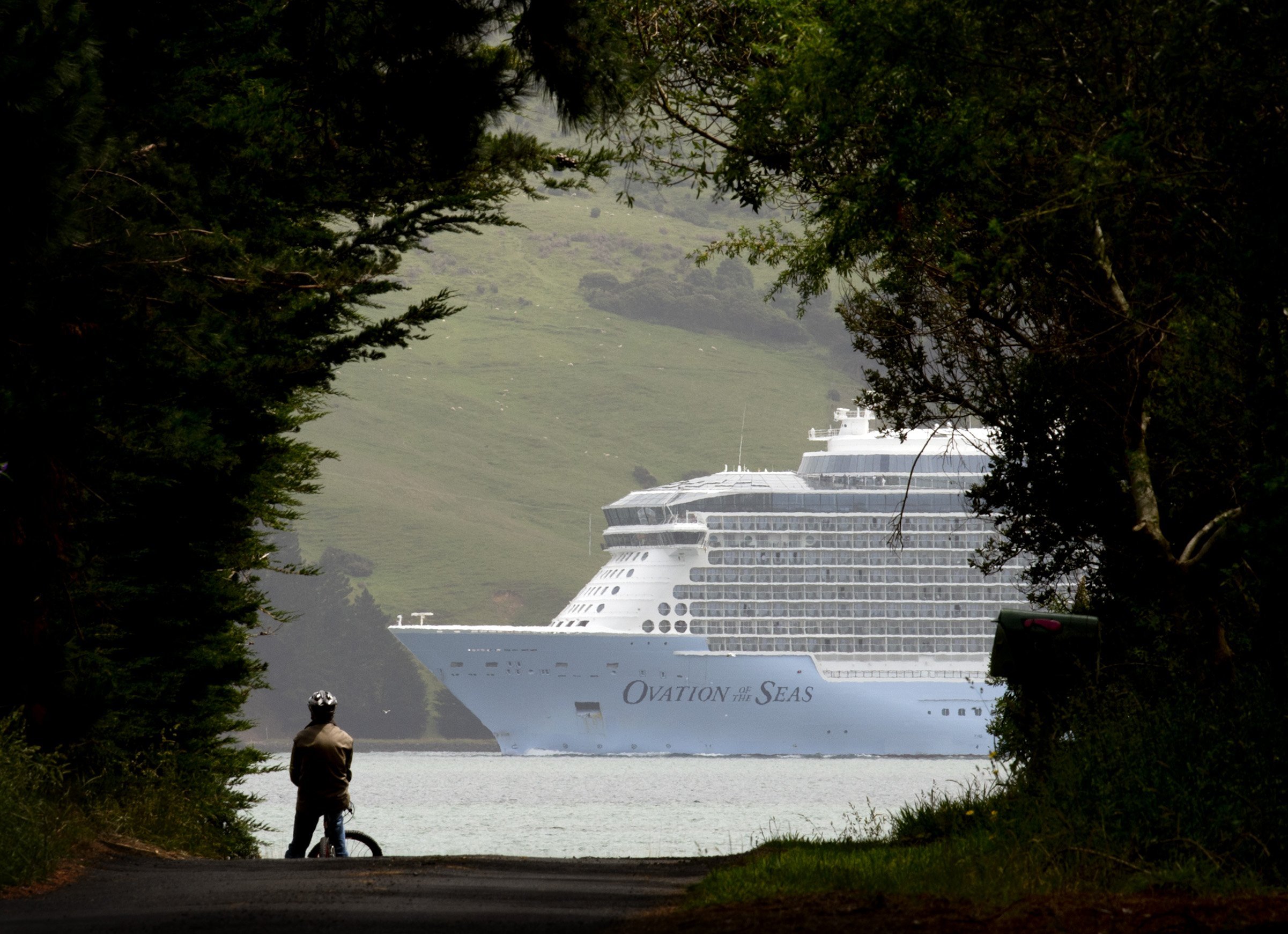Top Stories
Cruise Industry Faces Job Losses as Passenger Numbers Plummet

The cruise industry in New Zealand is bracing for significant challenges as it faces a substantial decline in passenger numbers, leading to inevitable job losses. According to the New Zealand Cruise Association (NZCA), passenger counts dropped by 20 percent last summer and are projected to decline by another 20 percent this year. The sector gathered for crisis discussions at its annual conference in Napier, under the banner “This is Not a Drill,” emphasizing the urgency of the situation.
During the conference, NZCA chief executive Jacqui Lloyd expressed cautious optimism amidst the crisis. “It is a little [like] crisis talks, but there is also a lot of positivity,” she noted. The discussions focused on how stakeholders must collaborate to convey the significance of the cruise sector to regional economies, particularly for tourism and hospitality businesses. For the upcoming 2025/26 season, Lloyd anticipates 660 port calls and about 215,000 cruise passengers visiting New Zealand, a sharp drop from 1,120 port calls and around 330,000 passengers in the 2023/24 season.
Lloyd highlighted that the industry needs policy changes rather than adaptations to navigate these turbulent times. “We’d rather not adapt, to be honest. We’d like to instead make sure that we get some return in that business,” she stated. She pointed out that regulatory changes, transparency regarding rising costs, and addressing biosecurity risks are essential to ensure the industry’s survival.
New Zealand’s strict regulations on biofouling, the accumulation of algae and microorganisms on ship hulls, pose a significant challenge. Lloyd explained that the lack of a safety net for cleaning operations could lead to delays and potential reputational damage for cruise lines. “There’s a risk of being turned away, because we don’t have a safety net in New Zealand to allow any kind of cleaning,” she said. Ships may have to wait outside the 12-nautical-mile limit until conditions allow for safe cleaning, causing frustration for passengers.
At the conference, representatives from Ports of Auckland discussed initiatives for in-water cleaning of visiting ships to mitigate these challenges. “Ports of Auckland has been speaking today about the trials they’re doing for in-water cleaning, which has been positive,” Lloyd explained. This approach aims to ensure safe cleaning practices that protect both vessels and New Zealand’s marine environment.
The uncertainty surrounding New Zealand’s tourism policies complicates planning for operators who typically schedule cruises years in advance. Lloyd cited instances where government agencies have unexpectedly raised charges by up to $20 per passenger within a short notice period. These abrupt changes are damaging New Zealand’s reputation as a desirable cruise destination. “We will need to do a lot of work, as a nation, to promote passengers to come back to our shores,” she emphasized.
As passenger numbers decline, job losses are anticipated, primarily affecting those in hospitality, tourism, and port operations. Lloyd mentioned concerns about job reductions impacting the approximately 10,000 jobs created by the cruise industry during the 2023/24 season. “There will be job losses, and that will predominantly be through hospitality and tourism providers,” she stated.
Viv Beck, the chief executive of central Auckland’s business association Heart of the City, underscored the importance of the cruise sector in attracting visitors. “Cruises are really important, particularly at a time where spending is down,” she remarked, noting the sector’s role in supporting local economies and businesses.
As the cruise industry navigates these turbulent waters, stakeholders remain hopeful that collaborative efforts can help steer the sector back towards stability and growth. The upcoming months will be critical in determining the long-term viability of cruising in New Zealand, as both operators and officials work to address the challenges at hand.
-

 World2 weeks ago
World2 weeks agoPrivate Funeral Held for Dean Field and His Three Children
-

 Top Stories2 weeks ago
Top Stories2 weeks agoFuneral Planned for Field Siblings After Tragic House Fire
-

 Sports3 months ago
Sports3 months agoNetball New Zealand Stands Down Dame Noeline Taurua for Series
-

 Entertainment3 months ago
Entertainment3 months agoTributes Pour In for Lachlan Rofe, Reality Star, Dead at 47
-

 Entertainment2 months ago
Entertainment2 months agoNew ‘Maverick’ Chaser Joins Beat the Chasers Season Finale
-

 Sports3 months ago
Sports3 months agoSilver Ferns Legend Laura Langman Criticizes Team’s Attitude
-

 Sports1 month ago
Sports1 month agoEli Katoa Rushed to Hospital After Sideline Incident During Match
-

 World3 weeks ago
World3 weeks agoInvestigation Underway in Tragic Sanson House Fire Involving Family
-

 Politics2 months ago
Politics2 months agoNetball NZ Calls for Respect Amid Dame Taurua’s Standoff
-

 Top Stories2 weeks ago
Top Stories2 weeks agoShock and Grief Follow Tragic Family Deaths in New Zealand
-

 Entertainment3 months ago
Entertainment3 months agoKhloe Kardashian Embraces Innovative Stem Cell Therapy in Mexico
-

 World4 months ago
World4 months agoPolice Arrest Multiple Individuals During Funeral for Zain Taikato-Fox

















